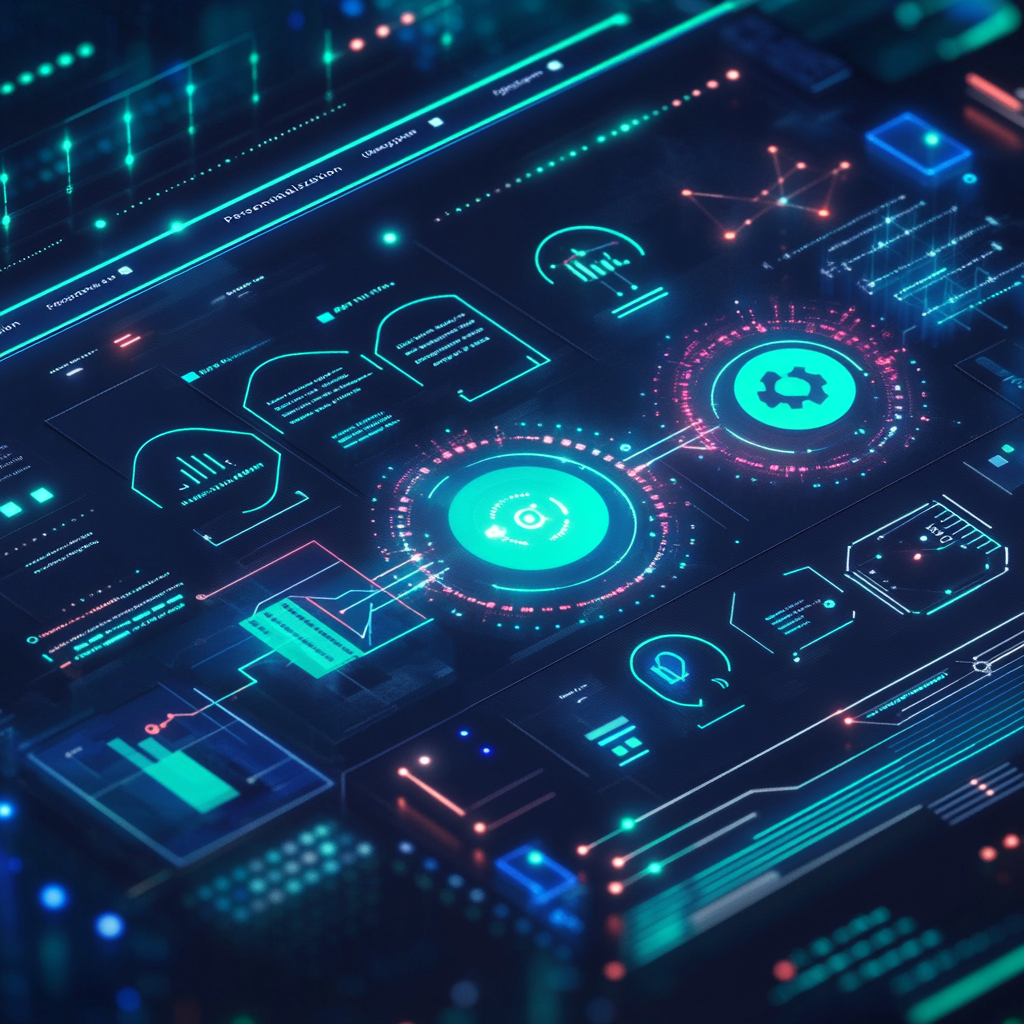Leadership in Cybersecurity: Why It Matters Now More Than Ever
In the ever-evolving space of digital marketing, where AI and automation relentlessly reshape our approach to consumer engagement, leadership in cybersecurity has become an imperative that no senior marketer can afford to overlook.
Conversations around artificial intelligence often focus on its dazzling benefits—predictive analytics, personalized customer experiences, and efficient ad targeting. As a savvy CMO or VP of Marketing, you’re undoubtedly aware of these perks and may even have harnessed them to drive remarkable growth. However, the integration of AI and machine learning into your strategies comes fraught with its own intricate challenges, primarily regarding cybersecurity.
Let’s dive into why robust leadership in cybersecurity matters now more than ever, the hurdles you’re likely facing, and strategies to navigate these complexities.
The AI Revolution in Marketing: A Double-Edged Sword
First, let’s recognize the transformative power of AI in our field. Artificial intelligence enables marketers to harness data like never before, offering precision and insight that were unfathomable a decade ago.
- Companies like Google leverage AI-driven algorithms to optimize their ad spends and predict user behaviors accurately.
- Similarly, HubSpot utilizes AI to automate customer experiences, from personalized email marketing to chatbots that engage prospects in real-time.
Yet, while AI serves as a powerful catalyst for innovation, it introduces a new layer of vulnerability. The same data-driven insights that propel marketing campaigns also present lucrative targets for cybercriminals. According to a 2022 report by Cybersecurity Ventures, cybercrime damages are expected to hit $10.5 trillion annually by 2025. Given this staggering statistic, the onus is on you, the marketing leader, to ensure robust cybersecurity measures are ingrained in your AI-driven strategies.
The Challenges: Navigating the Storm
1. Data Privacy and Compliance
With AI and automation often requiring vast amounts of consumer data to function effectively, data privacy emerges as a significant challenge. Marketing teams must navigate complex regulations like:
- The General Data Protection Regulation (GDPR)
- The California Consumer Privacy Act (CCPA)
Failing to comply not only risks substantial fines but also erodes consumer trust—an intangible yet invaluable asset.
2. Internal Cyber Threats
As marketing operations become increasingly automated, it’s no longer just the IT department’s responsibility to uphold cybersecurity. Human error remains one of the most substantial threats, whether through:
- Phishing attacks
- Inadvertent data breaches
Your team must be educated and vigilant, understanding that they are the first line of defense against these threats.
3. AI Model Vulnerabilities
AI models themselves aren’t impervious to attacks. Manipulative techniques, such as adversarial attacks, can corrupt AI systems, leading to flawed outcomes. For example, malicious actors can:
- Use false data to trick machine learning algorithms
- Skew analytics or compromise ad strategies
Overcoming the Challenges: A Proactive Strategy
1. Foster a Cybersecurity Culture
Security is a collective responsibility. Cultivate a culture where cybersecurity is paramount and integral to all operations. Here are some strategies:
- Regular training sessions
- Phishing simulations
- A clear communication channel with your IT team
For example, HubSpot places emphasis on internal education, making cybersecurity a core component of their operational ethos.
2. Prioritize Data Governance
Implement strict data governance frameworks to ensure compliance and protect consumer data. Google employs several data protection measures, such as:
- Encryption
- Tokenization
As a marketing leader, it’s crucial to work closely with your data protection officer to establish policies that safeguard your AI operations.
3. Incorporate AI-Driven Security Solutions
AI can be your ally, not only in marketing but also in cybersecurity. Machine learning algorithms can:
- Detect anomalies
- Flag potential security breaches preemptively
Consider integrating AI-based security tools to continuously monitor your systems, identifying and neutralizing threats in real-time.
Real-World Examples: Leading the Charge
Google utilizes machine learning for both customer engagement and cybersecurity. For example:
- Google’s Threat Analysis Group (TAG) studies data points to identify potential threats and stop them before they escalate.
- In marketing, they use AI to deliver tailored content while ensuring security by protecting user data against unauthorized access.
HubSpot
HubSpot exemplifies the integration of AI in marketing while upholding cybersecurity. They employ AI to automate customer interactions but implement stringent security measures. HubSpot ensures that its CRM:
- Adheres to GDPR and CCPA guidelines
- Safeguards client information at all stages
Future Outlook: The Path Forward
As we venture further into the AI-driven landscape, the demand for leadership in cybersecurity will only intensify. Emerging technologies like quantum computing could:
- Bolster and threaten current cybersecurity norms
As a marketing leader, your role will increasingly intertwine with cybersecurity, requiring you to stay updated on technological advancements and regulatory changes.
Parting Thoughts: Reflect and Act
Now is the time to reflect on how integrated your current strategies are with robust cybersecurity measures. Ask yourself:
- Are you fully compliant with data privacy regulations?
- Is your team well-informed and vigilant?
- Are you leveraging AI not only to propel growth but also to safeguard your operations?
Consider conducting a comprehensive audit of your current strategies and aligning them with best cybersecurity practices. Engage with your IT team to develop a proactive, forward-thinking approach that secures your data and earns consumer trust.
Remember, in the digital age, the line between marketing innovation and cybersecurity is becoming increasingly blurred—lead with foresight and resilience.
Leadership in cybersecurity matters now more than ever. As stewards of your brand’s integrity and growth, it falls on you to navigate this complex yet exhilarating frontier. Your journey towards integrating AI and automation in marketing must be underscored by strategies that prioritize cybersecurity—an endeavor that, when executed well, will protect and propel your brand into the future.
Lead with vision, act with prudence, and the future will be yours to craft.








Leave A Comment